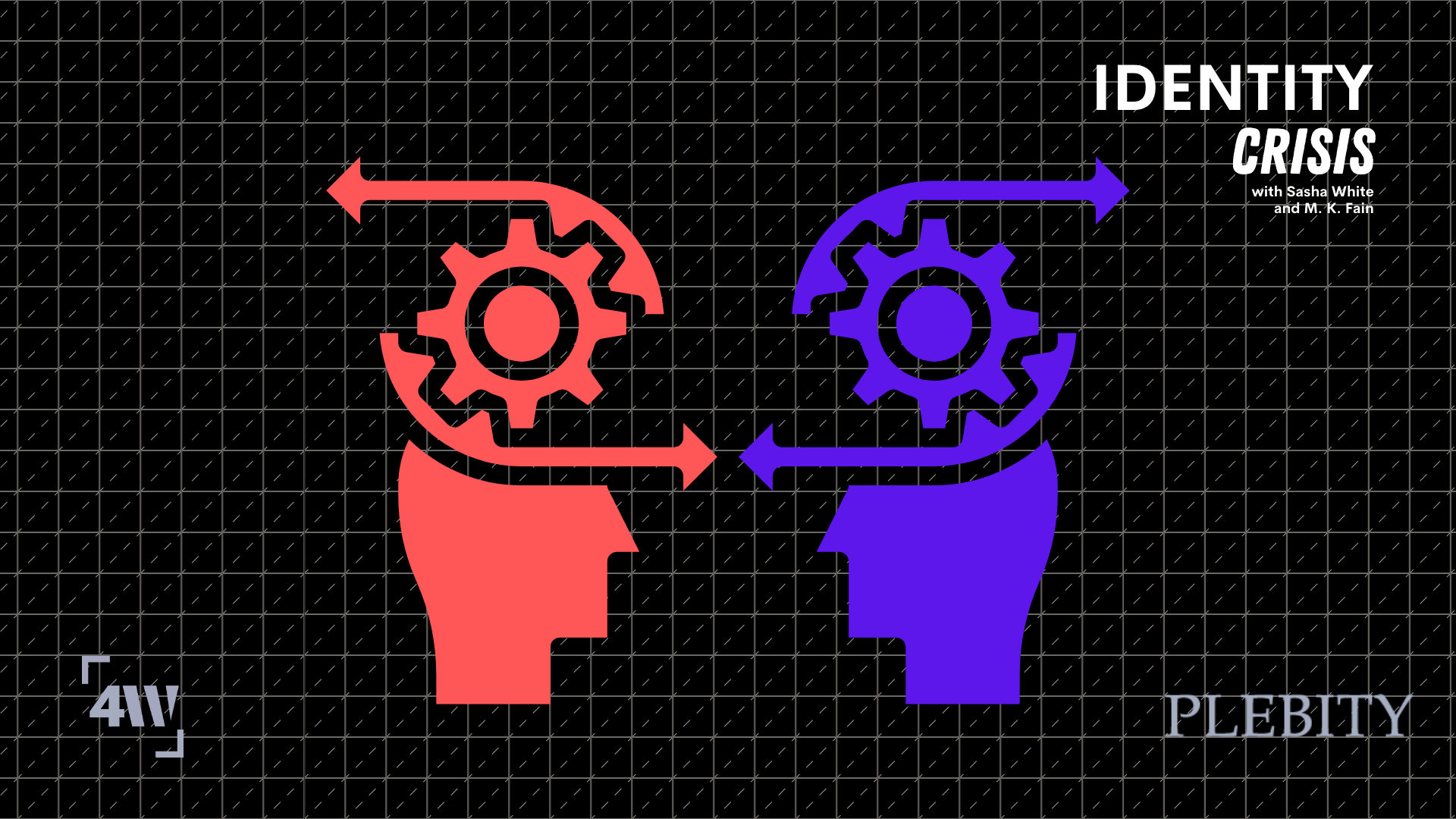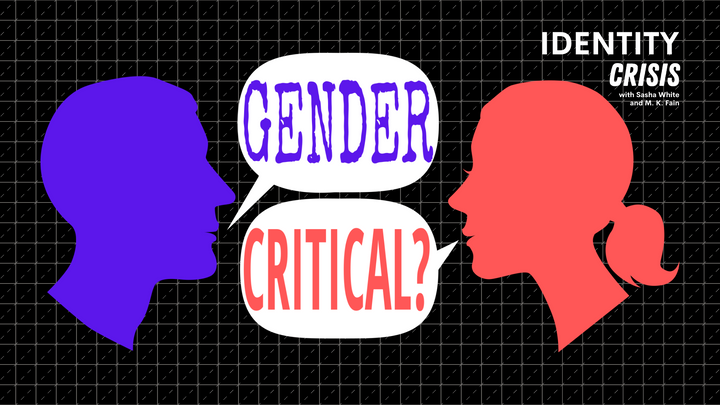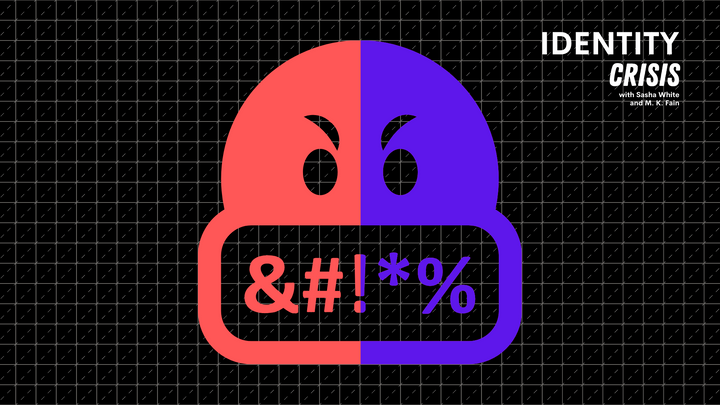Identity Crisis: Logical Fallacies in the Gender Debate

"Identity Crisis" is a new weekly column and podcast for young people struggling with the modern orthodoxy of gender identity ideology—developed in collaboration between Plebity and 4W by M. K. Fain and Sasha White. Each week, we will answer one or two of your questions, both as a running column here on 4W, and in the form of a video on YouTube.
To submit a question, email us at: [email protected]. We may publish your question in full, so be sure to leave out or change any identifying details if you would like to remain anonymous. Or, specify that your question is private and you would rather we discuss it in a general way.
“But I’m not guilty,” said K. “there’s been a mistake. How is it even possible for someone to be guilty? We’re all human beings here, one like the other.” “That is true” said the priest “but that is how the guilty speak.”
― Franz Kafka, The Trial
If you're looking for an engaging debate full of logic and reason, you may be disappointed in the current state of conversation around gender identity. This is intentional. Documents from inside the organizations pushing the trans narrative have revealed an intentional avoidance of public debate, and encouraged gender extremists to deplatform the conversation by any means possible – including violence.
For the most part, engaging in public on the issue of gender identity has very little to do with genuine arguments and good-faith debate with the aim of finding the truth. Extreme gender activists use violence, threats, bullying, and cancellation to make having a real argument too risky for most people. This is because when the debate is has, when gender extremists are forced to actually state their claims and defend them on equal footing without relying on scare tactics they crumble apart. The core of gender identity arguments is rotten with logical fallacies.
Logical fallacies aren't unique to the gender identity argument. Once you start looking for them, you'll find illogical arguments in every discussion under the sun. Whether it's politics or a fight with your parents or partner, we all fall into the trap of using these fallacies – sometimes without even realizing it. The gender critical/radical feminist side of the debate is not immune – sometimes, we rely on fallacies in our arguments, too.
Understanding logical fallacies isn't just for winning debates on Twitter. Having a basic grasp of the principles of logic will help you identify when you are being manipulated or fed bad arguments, help you better communicate your own stances, and make you a more critical thinker when examining all sorts of information to form your opinion. Just like learning about cognitive biases, learning about these fallacies isn't just to one-up other people. It's to help you on your own search for truth.
Common logical fallacies
We pulled a list of a few logical fallacies that we see commonly in the gender identity debate. All terms and definitions are from an exhaustive list on Wikipedia – feel free to check it out to learn more!

Equivocation
Using a term with more than one meaning in a statement without specifying which meaning is intended. Equivocation can also be used to conflate two positions which share similarities, one modest and easy to defend and one much more controversial. The arguer advances the controversial position, but when challenged, they insist that they are only advancing the more modest position.
Ex. "Gender is a social construct" (The term "gender" is being used, which could mean socially-constructed sex-role stereotypes, but increasingly is used a synonym for "sex."
Proof by assertion
A proposition is repeatedly restated regardless of contradiction; commonly confused with argument from repetition – repeating an argument until nobody cares to discuss it any more.
Ex. “Trans women are women.”
Affirming the consequent
The antecedent in an indicative conditional is claimed to be true because the consequent is true; if A, then B; B, therefore A.
Ex. “If trans women are women, then women are also trans women.”
Magical thinking
Fallacious attribution of causal relationships between actions and events. In anthropology, it refers primarily to cultural beliefs that ritual, prayer, sacrifice, and taboos will produce specific supernatural consequences. In psychology, it refers to an irrational belief that thoughts by themselves can affect the world or that thinking something corresponds with doing it.
Ex. “I identify as a woman, therefore I am a woman.”
Nirvana fallacy
Solutions to problems are rejected because they are not perfect.
Ex. “We can’t perfectly enforce bathroom segregation, so why even talk about keeping men out of the bathroom?”
Slippery slope
Asserting that a proposed, relatively small, first action will inevitably lead to a chain of related events resulting in a significant and negative event and, therefore, should not be permitted.
Ex. “Misgendering leads to violence against trans people,” “If you deny kids puberty blockers, they will kill themselves,” or “If we let men who identify as women in any one woman’s space, all women’s rights will be eroded.”
Red herring
Introducing a second argument in response to the first argument that is irrelevant and draws attention away from the original topic.
Ex. "Woman is not a feeling, you can't identify into being female..." "But black trans women are being killed!"
Kafka-trapping
Attempts to overcome an opponent by inducing a sense of guilt and using the opponent's denial of guilt as further evidence of guilt.
Ex. "If a white person denies they are racist, that just shows their White Fragility."
One thing that's important to note is that just because an argument uses a logical fallacy, this doesn't mean the conclusion is actually false – it just means that the argument itself does not support the conclusion. So be careful not to fall into the last fallacy...
Argument from fallacy (also known as the fallacy fallacy) – the assumption that, if an argument is fallacious, then the conclusion is false.
You can listen to "Identity Crisis" on Spotify, Google Podcasts, or wherever you get your podcasts. Subscribe to updates on Identity Crisis here: identitycrisis.xyz/get-updates
Enter your email below to sign in or become a 4W member and join the conversation.
(Already did this? Try refreshing the page!)






Comments